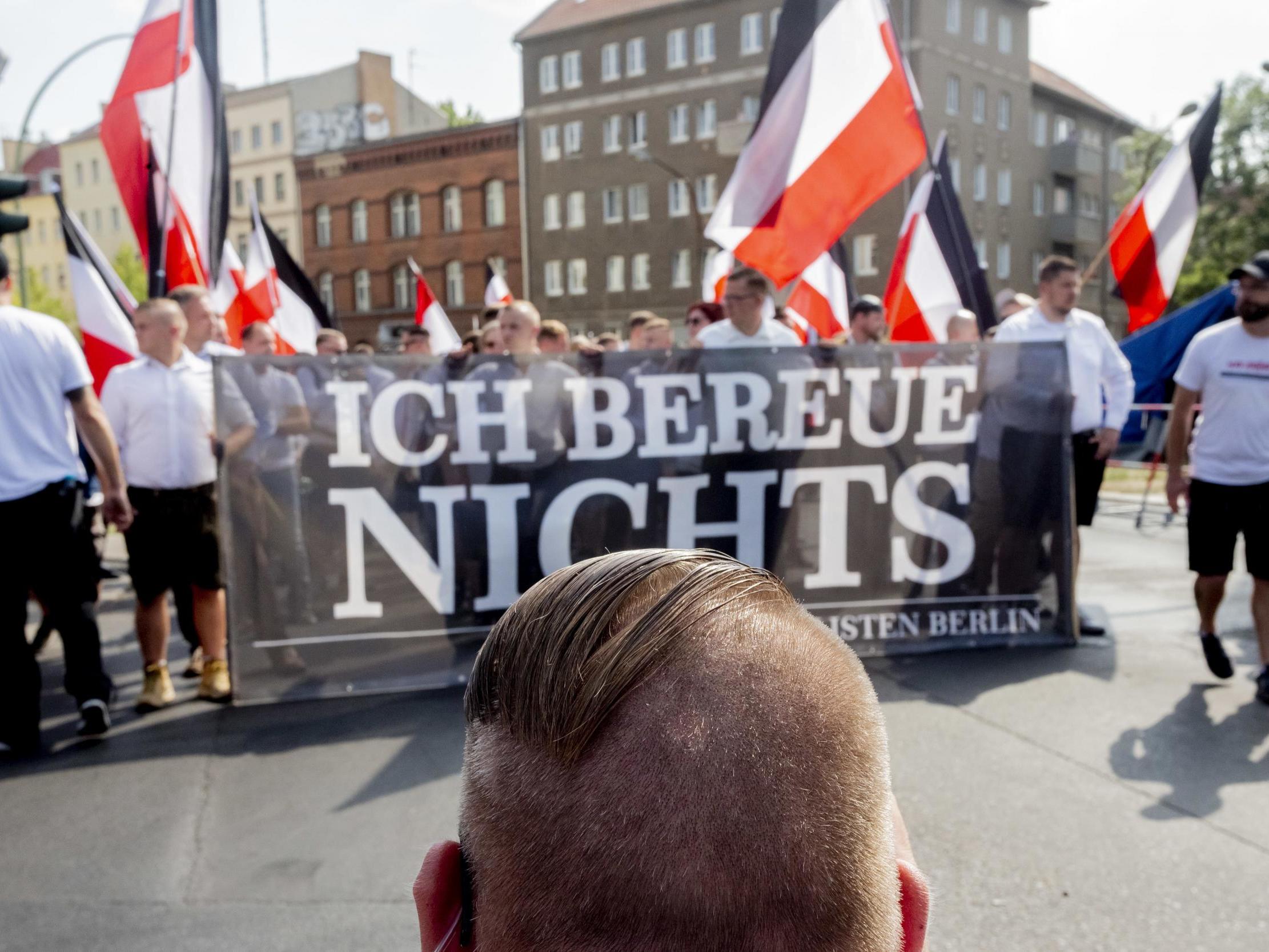Berlin protests: Far-right and anti-Nazi activists clash on anniversary of Rudolf Hess death
At least one police officer injured as demonstrators hurl bottles and stones

Your support helps us to tell the story
From reproductive rights to climate change to Big Tech, The Independent is on the ground when the story is developing. Whether it's investigating the financials of Elon Musk's pro-Trump PAC or producing our latest documentary, 'The A Word', which shines a light on the American women fighting for reproductive rights, we know how important it is to parse out the facts from the messaging.
At such a critical moment in US history, we need reporters on the ground. Your donation allows us to keep sending journalists to speak to both sides of the story.
The Independent is trusted by Americans across the entire political spectrum. And unlike many other quality news outlets, we choose not to lock Americans out of our reporting and analysis with paywalls. We believe quality journalism should be available to everyone, paid for by those who can afford it.
Your support makes all the difference.Hundreds of anti-Nazi campaigners clashed with far-right activists in Germany marking the anniversary of the suicide of Adolf Hitler's former deputy, Rudolf Hess.
Thousands of police were out in force in Berlin to prevent violence, and at least one officer was injured as stones and bottles were thrown.
Many of the far-right activists hoisted the red, white and black flag of Hitler's Third Reich.
One group carried a sign that proclaimed: "I regret nothing: National Socialists Berlin."
Police said there were reports of injuries when the counter-demonstrators threw missiles at the far-right demonstrators.
The anti-Nazi activists also staged non-violent sit-ins at crossroads along the march route in the neighbourhood of Lichtenberg, while others gathered to shout at the neo-Nazi demonstrators.
A separate march was staged in the Berlin suburb of Spandau, where Hess served a life sentence handed down at the Nuremberg war crimes trials. Fewer than 50 people attended.
Germany has tough laws that ban the use of symbols of the Nazi regime, such as the swastika flag, but the far-right has grown stronger since the arrival from 2015 onwards of more than a million mostly Muslim migrants.
While far-right activity remains a fringe phenomenon in Germany, it has been behind high-profile crimes, most recently 10 murders committed by the so-called National Socialist Underground, whose sole surviving leader was sentenced to life in prison last month.
The clashes took place about 40 miles south of the town of Meseberg, where chancellor Angela Merkel was meeting Russian President Vladimir Putin.
Rudolf Hess, who committed suicide aged 93 in Spandau Prison, west Berlin, in August 1987, was responsible for signing into law the Nuremberg Laws of 1935, which deprived the Jews of Germany of their rights.
He made a dramatic solo flight to Scotland in 1941, claiming, when captured, to want to negotiate an end to the Second World War. After four years, he was sent back to Nuremberg for trial, where he was sentenced to life in prison.
Additional reporting by Reuters
Join our commenting forum
Join thought-provoking conversations, follow other Independent readers and see their replies
Comments